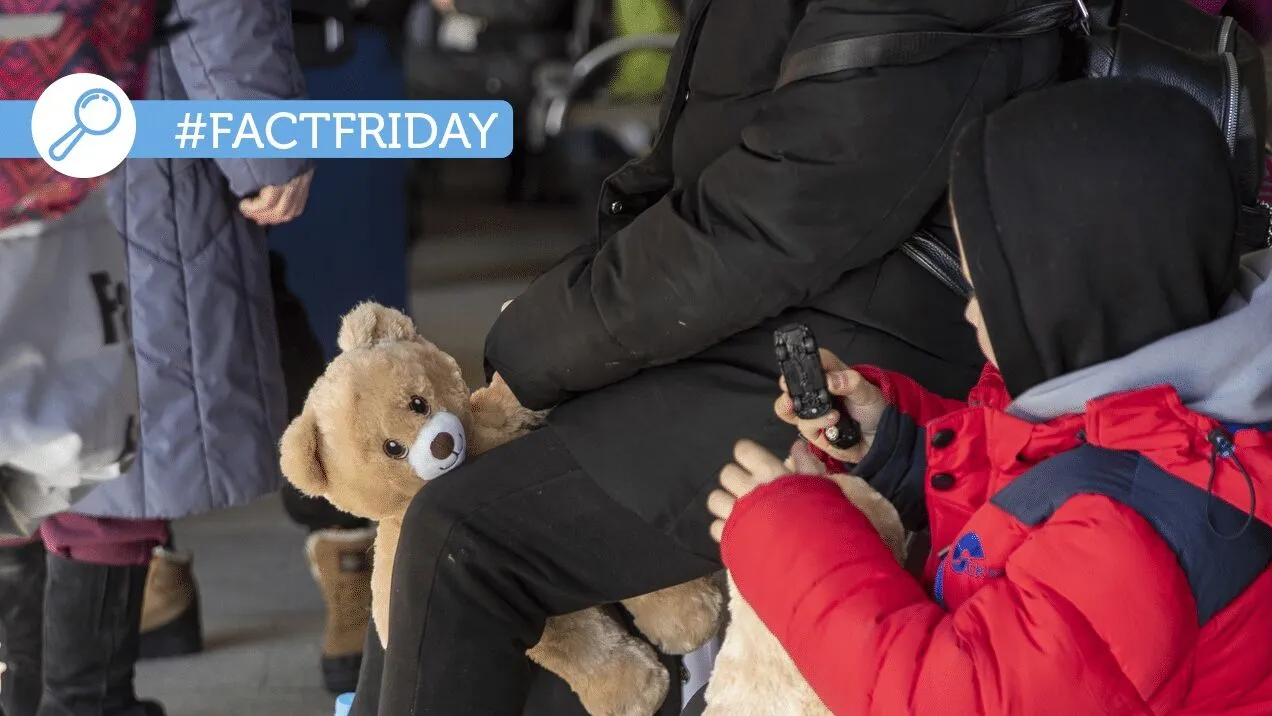4 Facts: The Health Challenges Refugees Face
Humanity recently passed a sobering milestone: For the first time, 100 million people are now forcibly displaced worldwide. And the health challenges they face are substantial. Here are four things to know.

The Ukraine crisis has displaced 14 million people in a matter of months — a staggering number that underscores the scale of this emergency and the urgent need for support. But it’s also just one of multiple refugee crises around the world that have displaced entire communities and led to the largest displacement crisis in history.
In places like Syria, Afghanistan, South Sudan, Somalia, and Democratic Republic of the Congo, millions of families have been forced to make the agonizing decision to leave their homes in order to seek safety. It’s a devastating choice, and it often comes at the steep cost of their health, especially when you consider that most refugees are women or children.
The health and safety issues facing refugees and internally displaced people are wide-ranging, and access to care can range from difficult to impossible. To make the situation worse, the average length of time refugees are displaced is increasing, with protracted refugee situations now lasting an average of 26 years.
Here are four things to know about the greatest health challenges refugees face and what Project HOPE is doing to scale up our work to meet this massive need.
1. For the first time ever, there are now 100 million forcibly displaced people worldwide. That would be one of the 15 most populous countries on earth.
The number of people who have been forcibly displaced from home is now larger than the entire populations of Vietnam, Turkey, Iran, and Germany. It’s equal to Spain and Portugal combined — plus Morocco. It’s more than double the population of California, triple the population of Texas, and five times the population of New York.
It would be the 15th largest country on earth, but it would be a country whose people have almost no access to health care, few opportunities to work, and a future in limbo that could last for decades.
The Ukraine crisis exacerbated this emergency, and Project HOPE is working urgently to meet the health needs of displaced Ukrainians, both in and outside the country. Our teams in Ukraine have established eight humanitarian hubs and seven medical resupply sites that have enabled us to ship in more than 200 pallets of urgent medicines and medical supplies. In Moldova, Romania, and Poland, our refugee programming is helping meet the health needs of Ukrainian refugees, including medical units at the Moldovan border, mental health support in Romania, and the creation of a hospital ward for Ukrainian children in Poland.

2. Of every 100 pregnant women who are forced to flee home, 15 will experience life-threatening complications during labor and delivery.
It is difficult to determine how many pregnant women are among the tens of millions of women who have been displaced, but studies have found numbers ranging from 9% in some contexts to 14% in others. That means that millions of women right now are facing the reality that they will have to deliver their child away from home, in another country, or on the move. The vast majority of them will have to do it without prenatal or antenatal care, and many will do it outside formal health facilities or without a skilled attendant present.
Maternal mortality rates among refugees are several times higher than the general global population, with one study finding that 15% of these women will experience life-threatening obstetric complications. For too many women who have been displaced, giving birth is a life-or-death event.
In Colombia, which is now home to more than 1.7 million Venezuelan refugees and migrants, Project HOPE is providing essential maternal health care in hospitals and clinics near the border. For many women, this is the only prenatal care they have received amid the stresses and unknowns of displacement.

3. The most serious health issues for refugees are increasingly shifting to chronic illnesses like diabetes, hypertension, and cardiovascular disease.
While infectious diseases like cholera and COVID-19 are still a major issue in refugee settings like camps and borders, chronic diseases like cancer and diabetes are increasingly becoming the most serious health issues for people who have been displaced.
Noncommunicable diseases are the world’s number one killer, and the burden of NCDs in the top refugee countries of origin tells the story: NCDs account for 63% of the health burden in Myanmar, 51% in Sudan, and 43% in Afghanistan. Most refugees do not live in camps; they live in cities: a 2019 study of Syrian refugees in Jordan found that more than 1 in 10 experienced hypertension, with other issues including cardiovascular disease and diabetes.
Managing chronic health conditions can be a long, costly road. In places with large refugee populations like Jordan, Colombia, Ukraine, Poland, and Moldova, Project HOPE is supporting health systems and health workers so they have the tools and training they need to treat their communities.

4. Adult refugees and asylum seekers have higher rates of severe mental health issues like post-traumatic stress disorder and depression.
Displacement is traumatic, especially in conflict settings. But the number of refugees who are able to receive mental health treatment vastly underrepresents the need: In 2018, mental health consultations accounted for less than 2% of refugee health consultations.
Because most refugees live in low- or middle-income regions, health care infrastructure on its own can be lacking. Treatment for mental health is often completely out of reach. Yet displacement brings a number of traumas that can lead to severe mental health issues, particularly in children. The most common issues among refugees are depression and anxiety, but more serious issues like post-traumatic stress disorder can also be found in populations affected by conflict, violence, and persecution.
Mental health is health, regardless of who you are or where you live. Project HOPE is prioritizing mental health for Ukrainian refugees in our response to the Ukraine crisis and is supporting multiple local organizations in Romania to provide mental health care for refugees. We’re also training 50,000 health care workers worldwide to protect their own mental health as they cope with the stresses of their work.







